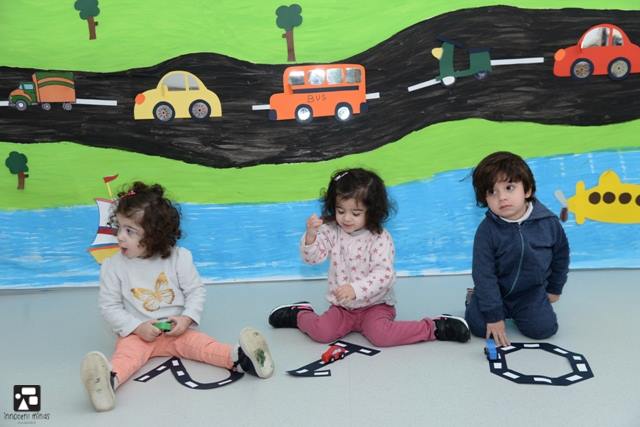
The first weeks when your child is settling in are of crucial importance to their later happiness at nursery, extra care taken before and during this period will minimize difficulties later on and how easily and happily they mix with others.
Unhappy children result in unhappy parents - So how can you help your child settle from the start?
Put your child’s feelings first.
Your child has formed a strong attachment to you and need support and time to form another strong bond with the staff at the nursery. If you leave just 10 minutes after handing over your child, it would not be a surprise if they became clingy or frightened. You know that they’ll be looked after and will have fun, but they need to learn from experience that they’re safe and that the staff will care for them. This is why a settling in period is so important.
The nursery should allocate a key worker to help your child settle in and feel safe and confident.
The settling in period is a gradual introduction of your child to the nursery, its children, activities, daily programme and staff. It is also a gradual withdrawal of your presence, and these two aspects have to be carefully and sensitively balanced. At first, the nursery is bound to be rather an overwhelming experience, particularly for children under 3, and for those who have not had experience of a playgroup, childminder, or some other form of care outside the home. Your child’s personality will certainly make a difference: some take to the change very easily, whilst others need more care and time.
At first, your child is going to need your support and presence to be able to cope with the new experience. This is why your first visits should be short and you should not try to leave your child at all. However, you can use these visits constructively by talking with the key worker and other children, and perhaps drawing your child into whatever activity is going on. It will be the key workers job to form a strong bond with you and your child during the first visit, settling-in period and ongoing weeks and months of childcare. It is important to make sure the key worker will be around for the duration of that early period, so ask them if they have holiday or training leave that will take him or her out of the setting during the first week, at the very least. A second key worker should be introduced as back-up, in case the primary person is taken ill.
Remember that your child is used to having you with them wherever they are.
That’s why the key worker is crucial in helping your child feel secure when you leave. Once you have acquainted yourselves with the Nursery (and the Nursery staff with you!) and you feel your child is ready to be left for a while, first mention this to the key worker so they can be ready to provide any extra help that is needed. It is normally best to be open and straightforward with your child about leaving them. Slipping away when they are not looking can be very distressing to a child when they find out you have gone. For the first time, you are only going to be away a short while, so tell your child and the key worker, then leave without hesitating. It is much harder for a child to deal with you leaving if you are obviously unsure and hovering. It may help if you give your child a minute or two’s notice that you are leaving, so they can begin to get used to the idea.
The nursery should plan, and budget for, the time that the settling-in period will take.
Most settings schedule a minimum of two to four weeks, during which time they can get to know you and your child, and invite you for progressively longer try-out sessions. Resist any shortcuts. These sessions should cover every aspect of the day, not just the first half-hour. Use them to gently introduce your child to toileting, snack and meal times, play time, walk time and more – in fact, anything your child might find scary on their own.
The nursery should make you their partners.
The staff can learn just as much from you about the best way to care for your child as you’ll learn from them about the setting’s policy and routine. At first, you change, toilet, talk to and feed your toddler while they’re around, and do tell the key worker anything that may make it easier for them to respond to your child’s needs. For example, is there anything your child particularly likes or dislikes, are there any ‘family words’ for particular things, does your child have a special comforter and so on. Mention anything you feel may be relevant.
Throughout your child’s stay in the setting, build on the early partnership with staff.
The staff at the nursery should take time to talk to you (about how your child is sleeping, eating and feeling) at drop-off and at the end of the day. Staff will let you know the best way to get in touch either by phone, text or email, and explain how they’ll communicate (through a diary or day book, for example) the events of the day with your child.
Virtually all children will settle in if this guidance is followed, and even if there are setbacks, your child will gradually get used to what is a major change in their life. You will probably find that your child reacts in some way; they may be more clingy than usual, or they may be more rejecting. Both are normal reactions, and a little extra attention and love will help them to cope with these feelings.

 KSA
KSA Bahrain
Bahrain UAE
UAE Qatar
Qatar Jordan
Jordan Egypt
Egypt Turkey
Turkey South Africa
South Africa




(0) Comments